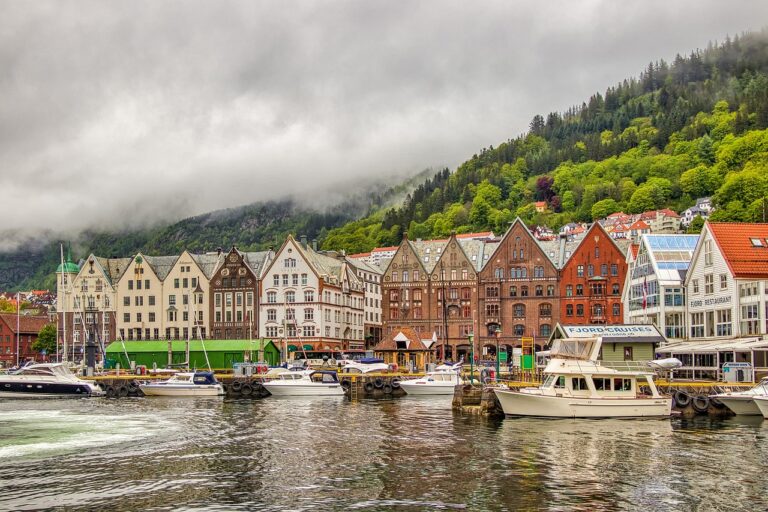Traveling for Culture: Exploring Unique Local Music Traditions
As travelers seek to immerse themselves in the rich tapestry of cultures around the world, one of the most captivating ways to experience a destination’s unique identity is through its music traditions. From the lively rhythms of African drumming to the haunting melodies of traditional Japanese instruments, music has a powerful way of connecting people to the history, customs, and emotions of a culture.
For those who are passionate about exploring the world through music, embarking on a journey to discover local music traditions can be a transformative experience. In this article, we will delve into the fascinating realm of traveling for culture, focusing on the exploration of unique local music traditions in different parts of the globe.
Why Travel for Culture?
Traveling for culture is more than just sightseeing – it is a deep dive into the heart and soul of a destination. By immersing yourself in the local music traditions of a place, you gain a deeper understanding of its history, beliefs, and values. Music is a universal language that transcends boundaries and can forge connections between people from different backgrounds. When you travel for culture, you have the opportunity to not only listen to music but also to interact with local musicians, learn about their instruments, and even participate in traditional performances.
Exploring Unique Local Music Traditions
1. Ireland: The Heartbeat of Celtic Music
Ireland is renowned for its vibrant music scene, with traditional Irish music holding a special place in the hearts of locals and visitors alike. From lively jigs and reels to soulful ballads, Celtic music is a powerful expression of Ireland’s rich heritage and culture.
While in Ireland, be sure to visit a local pub for a traditional Irish music session, where talented musicians gather to play fiddles, tin whistles, bodhr᮳, and other traditional instruments. You can also attend a live performance of Riverdance, a world-famous Irish dance show that celebrates the country’s music and dance traditions.
2. India: The Melodic Tapestry of Classical Music
India is a melting pot of diverse musical traditions, with classical music playing a central role in the country’s cultural fabric. Whether you are in the bustling streets of Mumbai or the serene temples of Varanasi, you will be surrounded by the enchanting sounds of Indian classical music.
Attend a classical music concert in India to experience the mesmerizing ragas and talas that form the backbone of this ancient tradition. You can also explore the vibrant world of Bollywood music, which fuses Indian classical melodies with modern Western influences.
3. Morocco: The Magical Sounds of Gnawa Music
Morocco’s music scene is a vibrant mix of Arabic, Berber, and African influences, with Gnawa music standing out as a unique and captivating tradition. Gnawa music is deeply rooted in Moroccan spiritual practices and is characterized by hypnotic rhythms, trance-inducing chants, and traditional instruments such as the guembri and qraqeb.
Immerse yourself in the world of Gnawa music by attending a live performance or participating in a Gnawa music workshop in Morocco. You can also visit the annual Gnaoua World Music Festival in Essaouira, where musicians from around the world come together to celebrate this enchanting musical tradition.
4. Japan: The Tranquil Beauty of Traditional Japanese Music
Japan’s music traditions are steeped in a deep sense of history and spirituality, with traditional instruments such as the shamisen, koto, and shakuhachi creating a tranquil and meditative atmosphere. Whether you are in the bustling city of Tokyo or the serene countryside of Kyoto, you can experience the unique sounds of traditional Japanese music.
Attend a performance of traditional Japanese music, such as a kabuki theater or a taiko drumming show, to witness the exquisite craftsmanship and precision that goes into these performances. You can also participate in a traditional tea ceremony or ikebana (flower arranging) workshop to further immerse yourself in Japan’s rich cultural heritage.
5. Brazil: The Rhythmic Diversity of Samba and Bossa Nova
Brazil’s music scene is a vibrant tapestry of rhythmic diversity, with genres such as samba and bossa nova capturing the lively spirit of the country. From the bustling streets of Rio de Janeiro to the tranquil beaches of Bahia, you will be surrounded by the infectious rhythms and joyful melodies of Brazilian music.
Experience the pulsating energy of samba music by joining a carnival parade in Brazil or attending a live performance of a samba school. You can also explore the smooth melodies of bossa nova at a local jazz club or beachside bar, where talented musicians pay homage to the legendary artists who helped shape this iconic genre.
6. Mali: The Soulful Sounds of West African Music
Mali is a musical powerhouse in West Africa, with its rich musical traditions influencing genres such as blues, jazz, and reggae around the world. From the griots (traditional storytellers) to the modern desert blues bands, Malian music is a vibrant expression of the country’s history, culture, and struggles.
Embark on a musical journey through Mali by attending a live performance of traditional Malian music, such as the kora (21-string harp) or ngoni (lute). You can also explore the thriving music scene in Bamako, where local musicians blend traditional rhythms with contemporary sounds to create a unique and dynamic musical experience.
Frequently Asked Questions (FAQs)
Q: How can I support local musicians when traveling for culture?
A: One of the best ways to support local musicians when traveling for culture is to attend their performances, purchase their music or merchandise, and share their talent with others. You can also consider taking music lessons from local musicians or joining a music workshop to learn more about their traditions.
Q: Are there any ethical considerations to keep in mind when interacting with local musicians?
A: It is important to respect the cultural traditions and beliefs of local musicians when interacting with them. Avoid appropriating their music or instruments without permission, and always ask for consent before taking photos or videos. It is also recommended to compensate musicians fairly for their performances and share information about their work with others.
Q: How can I learn more about the music traditions of a destination before traveling?
A: You can research the music traditions of a destination by reading books, listening to recordings, watching documentaries, and connecting with local musicians and music enthusiasts online. Consider reaching out to cultural organizations, embassies, or tourism boards for recommendations on where to experience local music traditions during your trip.
By immersing yourself in the vibrant and diverse music traditions of different cultures, you can gain a deeper appreciation for the unique identities and expressions of people around the world. Traveling for culture is not just about exploring new places – it is about connecting with the heart and soul of a destination through the universal language of music.





